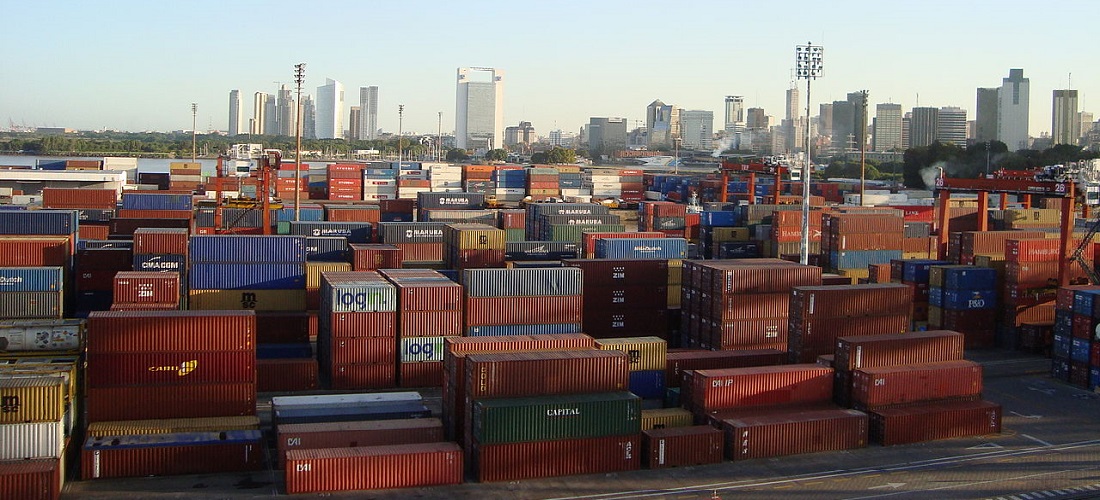
International trade in Argentina face strong headwinds
Jun, 09, 2023 Posted by Gabriel MalheirosWeek 202323
Argentina’s recent restrictions on accessing dollars for international freight payments have placed the country in the same category as Venezuela as a “dirty port,” meaning these services cannot be paid using local currency. The situation is unfavorable, and companies do not anticipate a reversal in the short term due to the scarcity of dollars.
The twelve shipping companies operating in Argentina have expressed concerns about the uncertainties surrounding the waterway, which is still under state control and facing delays in concessions.
The Central Bank’s Measure A 7771, which eliminates the exception allowing immediate access to the foreign exchange market for freight payments, has further complicated the situation. Instead, companies must obtain approval from the Argentine Republic’s Imports and Payments for Services Abroad (Sirase) through a declaration.
Julio Delfino, president of the Navigation Center of the Argentine Republic, criticizes the government for the lack of progress in addressing sector-specific issues, despite the problems being raised by various stakeholders in the production and logistics chain.
According to Delfino, since May 19, pre-approval at Sirase has been required for S02 (freight) and S04 (other transport services). He laments that the Central Bank’s previous interpretation of “adequately separating international freight” was insufficient to meet the government’s needs, given the scarcity of dollars.
Delfino ironically notes that the latest measure adds container ships to the existing list of merchant ships (cargo ships, oil tankers, gas tankers, etc.). He remarks, “We could acknowledge a step towards coherence since the ‘no’ now applies to everyone, regardless of whether an exporter, importer, freight forwarder or seaman presents the international freight.”
Industry insiders warn of numerous problems resulting from the imposed restrictions. An operator explains that shipping companies charge freight abroad to ensure that ships continue coming to Argentina; otherwise, they won’t load cargo. Another possibility mentioned is that shipping companies may choose to unload at the ports of Santos (Brazil) or Montevideo (Uruguay).
Various entities involved in the sector have been sounding the alarm about the multiplying problems. The Chamber of Exporters (CERA) points out that these complications add to the existing “outdated” infrastructure connections between Argentina and the world. For instance, The draft of the Buenos Aires port has led to the loss of routes and its transformation into a feeder port for non-national ports.
Exporters anticipate a significant decline in exports, a substantial increase in logistics costs, and a reduction in dollar inflows, thereby exacerbating exchange rate tensions.
The Chamber of Importers (CIRA) has raised concerns about the delicate logistical situation in Argentina, citing high port costs compared to other Latin American countries and the risk of losing traffic and frequencies to more competitive and accessible destinations in the region.
Operators highlight the challenge of accumulating more containers due to the existing backlog at ports. Since last year, when the government started requiring companies to finance part of their imports, container shipments have been halted. Bonded warehouses and the free zone are currently reported as full.
Another concern is whether Argentina will continue to receive a substantial number of containers due to the recent resolutions, which have led to significant dispersion in freight prices.
Although no shipping company has halted operations in Argentina thus far, none plans to increase storage capacity or add more ships, despite high export demand. Data from the industry shows a 25% decrease in storage space compared to pre-pandemic levels in 2019.
Shipping companies in Argentina have not yet halted their operations, but they have no plans to expand storage capacity or add more ships, despite the continued high demand for exports. Industry data reveals that the current storage space is 25% less compared to the pre-pandemic levels 2019.
Regarding prices, import freight costs have become 80% cheaper than during the pandemic, while export freight rates have decreased from 30% to 40%. The companies claim that these prices are in line with global standards. For instance, the Shanghai-Buenos Aires route averaged $15,000 per container in 2021-2022, but it has dropped to around $2,000 today.
Regarding imports, Argentina primarily relies on the Asian route, while REEFER exports with higher added value are mainly destined for Northern Europe, followed by the United States, the Caribbean, Brazil, and Asia. The most imbalanced situation occurs in Asia, where four containers enter for everyone that leaves.
The waterway’s future, which handles 80% of Argentina’s trade, remains uncertain. Shipping companies are awaiting a decision on whether the National Authority for Control and Management of Waterways (Ecovina) administration will be retained or if it will be opened for international bidding. The governors of the Federal Waterway Council advocate for the canal to remain under state control for a few more years.
Emphasizing the importance of a tender process, Delfino highlights the need to determine the depth, width, passage zones, adaptations, and other necessary aspects for the future of the main waterway based on public notices and upcoming projects. This infrastructure is vital for driving the country’s growth, enhancing freight competitiveness, and reducing costs per ton, thereby expanding the reach of Argentine cargo to more destinations worldwide.
Delfino reiterates that the delays in infrastructure development and decision-making hinder meaningful discussions about the future of the port of Buenos Aires. This delay also hampers necessary investments in other ports along the waterway, which are eager to improve their cargo performance to accommodate larger ships with draft requirements exceeding the current limit of 34 feet. With port concessions expiring in 2024, conducting a new tender without clarity on access depth projections would be unserviceable.
Source: La Nación
To read the original news report, access: https://www.lanacion.com.ar/economia/comercio-exterior/el-comercio-internacional-argentino-se-mueve-en-aguas-turbulentas-nid08062023/
-
Other Cargo
Dec, 26, 2023
0
Brazil secures “pre-listing” agreement with Chile for egg exports
-
Ports and Terminals
Sep, 30, 2019
0
Agrovia do Nordeste ends operation in Suape
-
Grains
Feb, 18, 2022
0
Trading companies suffer a setback in Pará regarding excise tax
-
Automotive
Jul, 07, 2021
0
ANFAVEA increases automotive export projections by 20%

